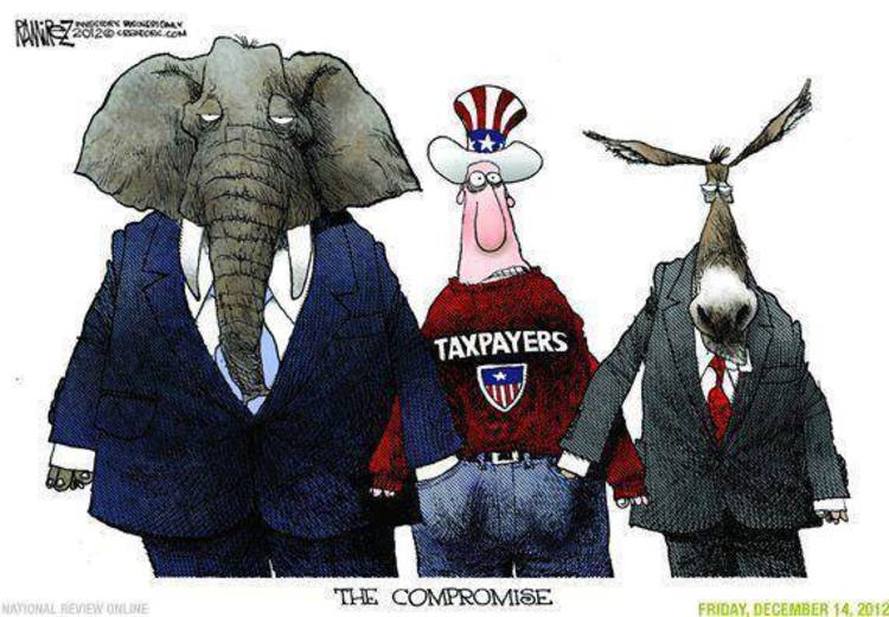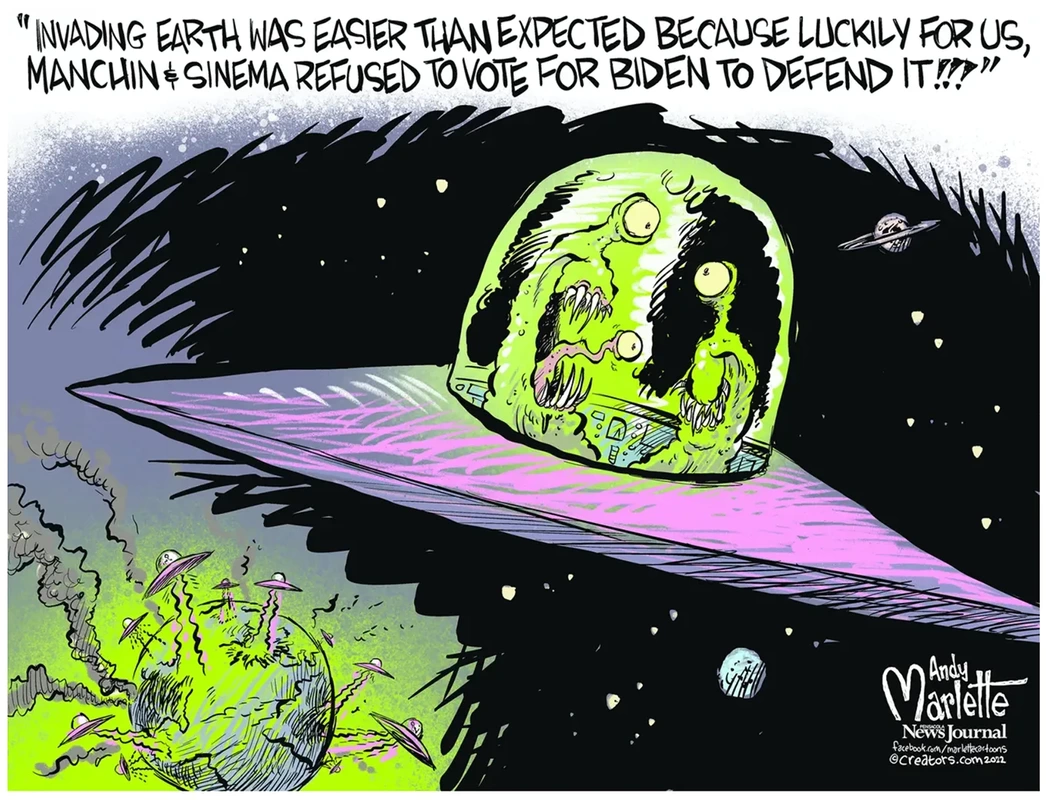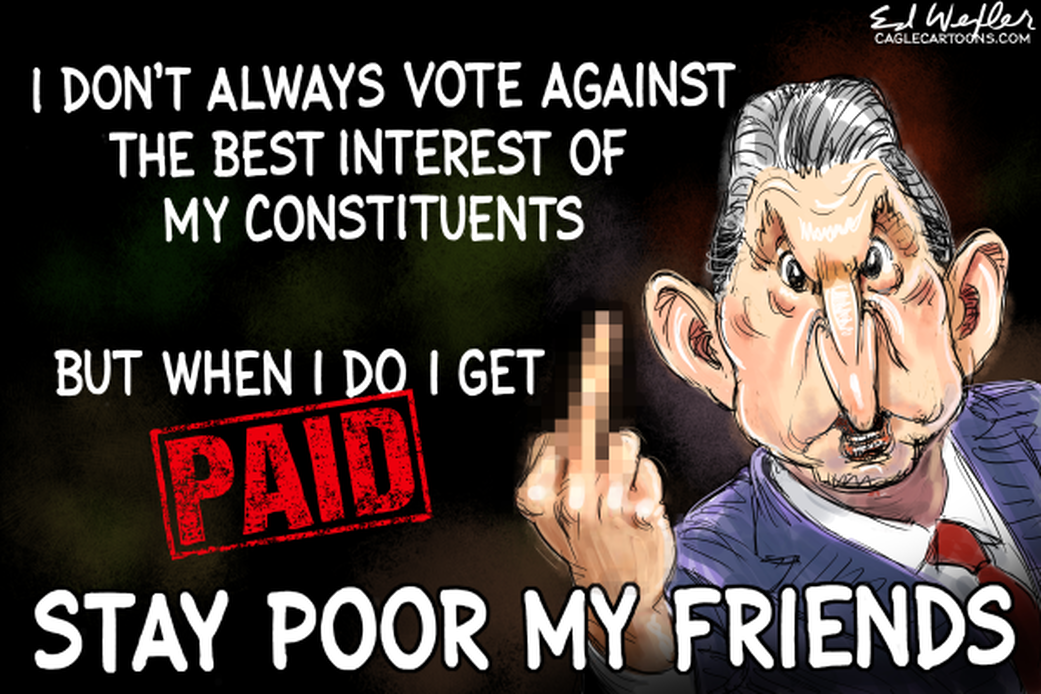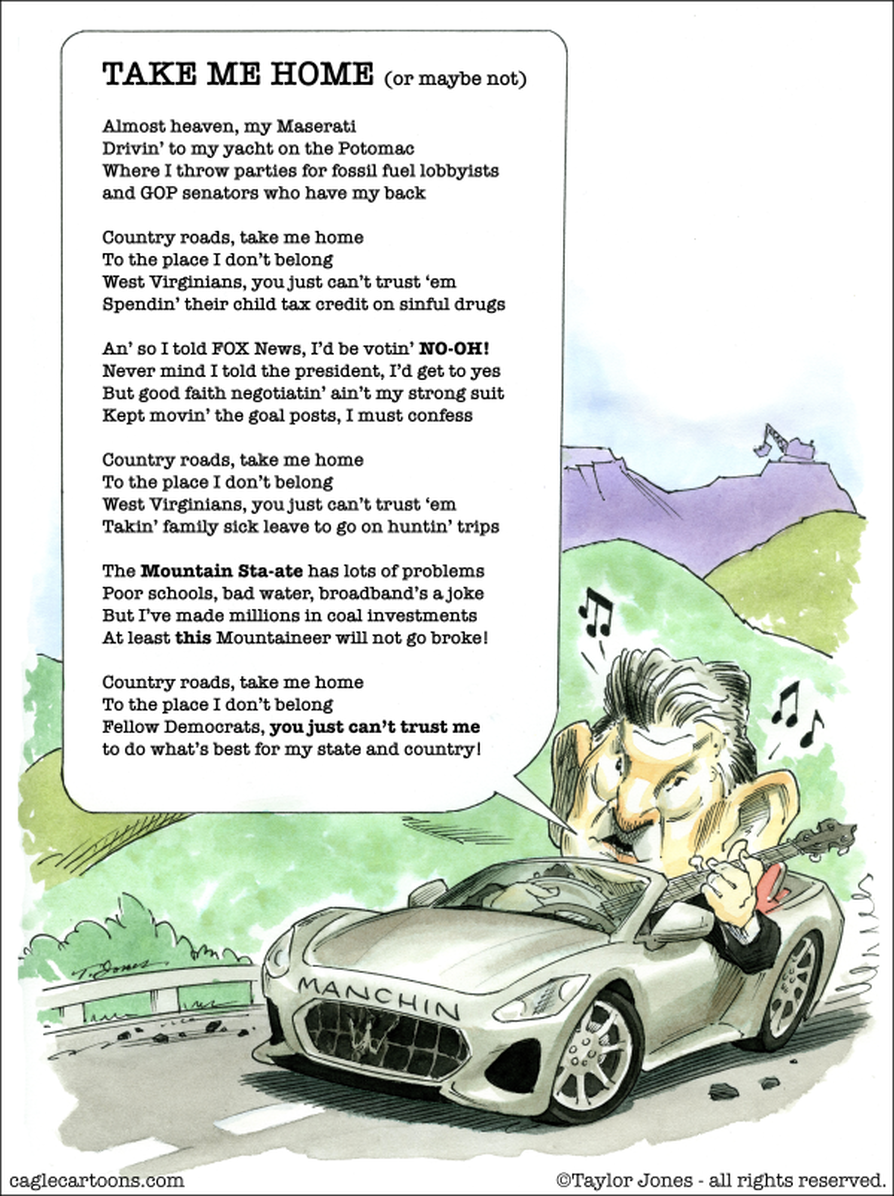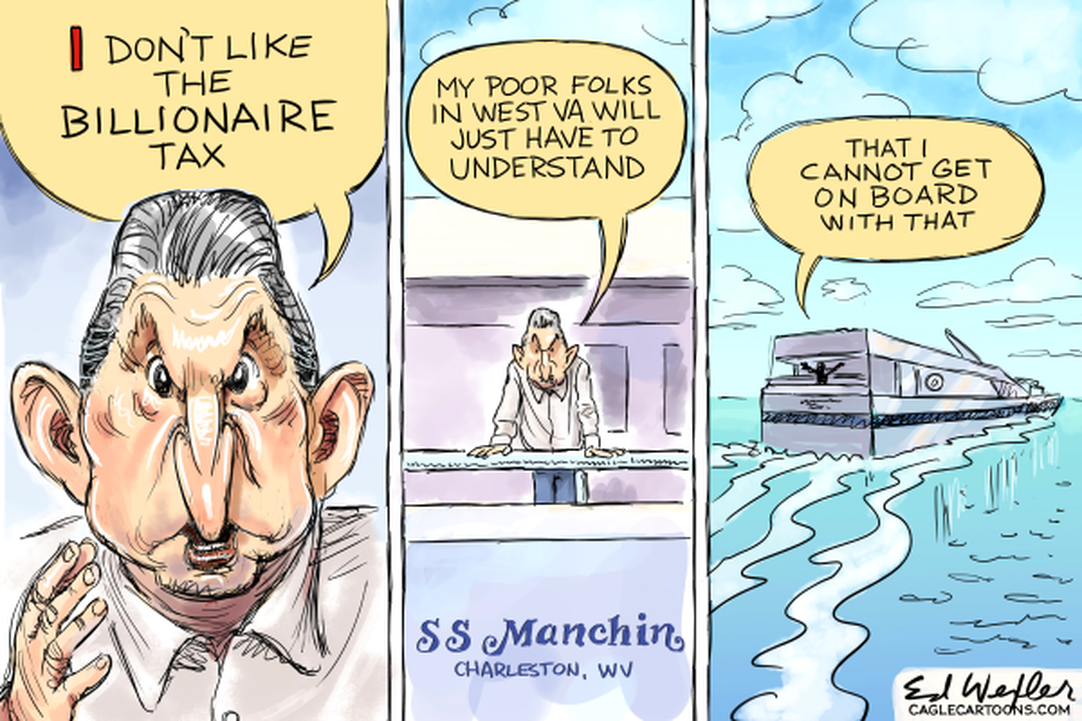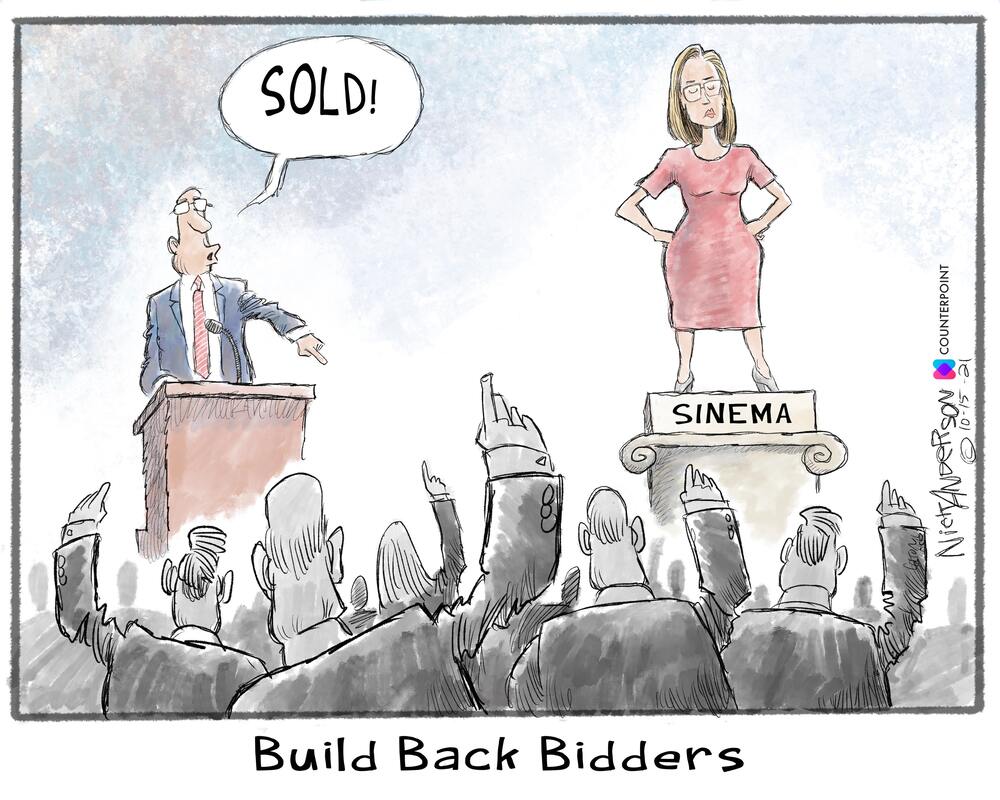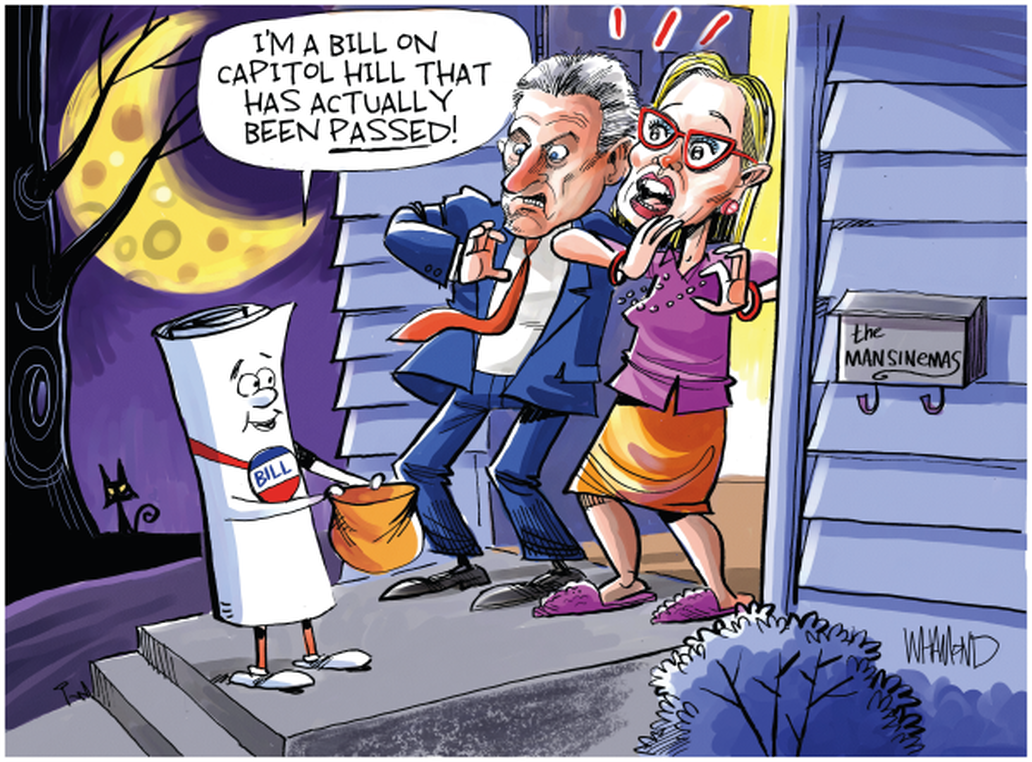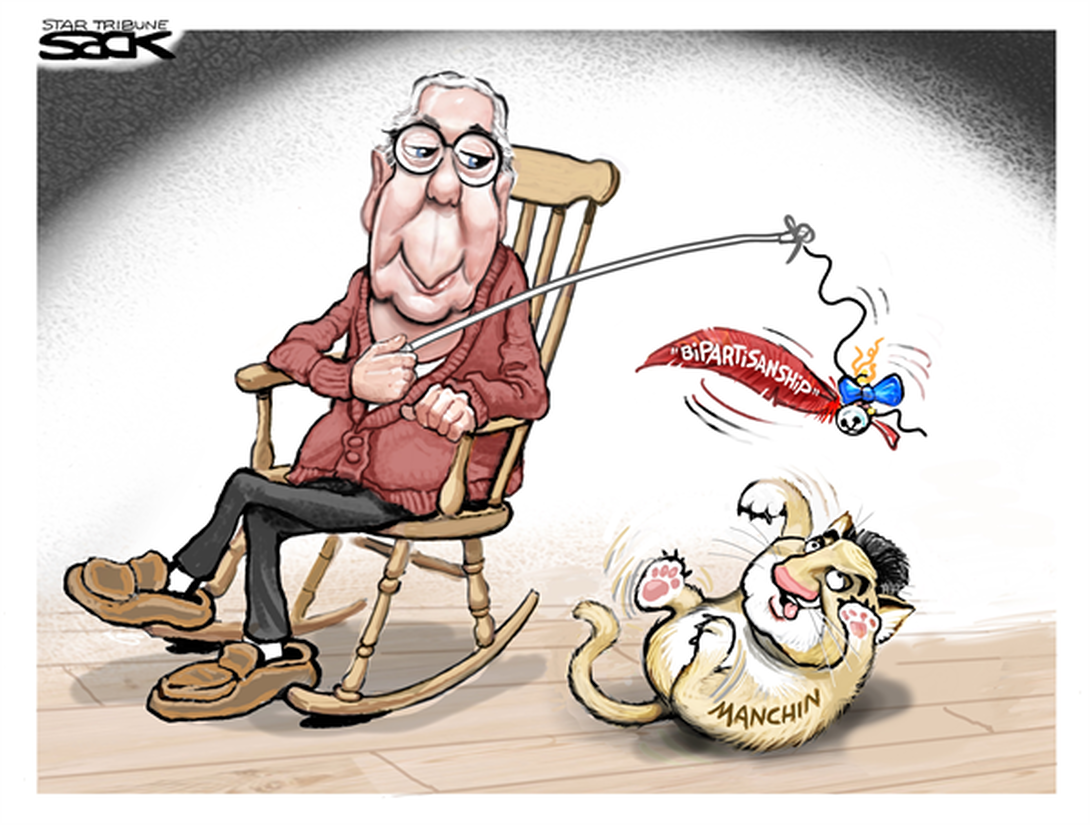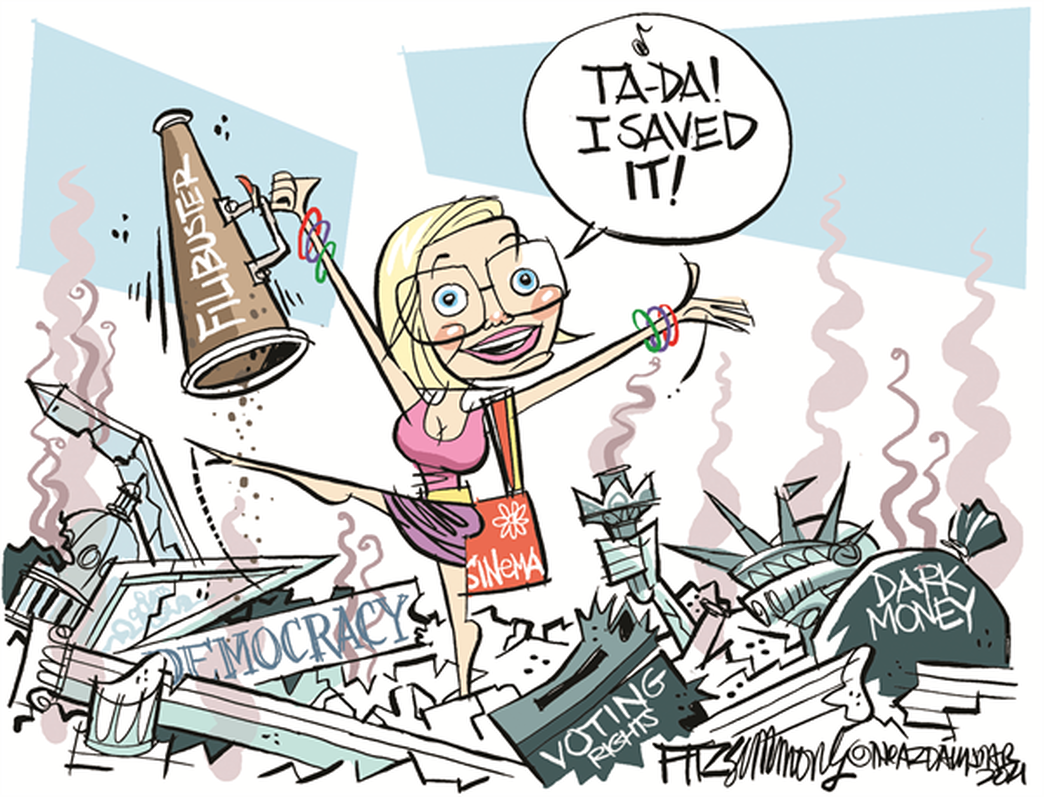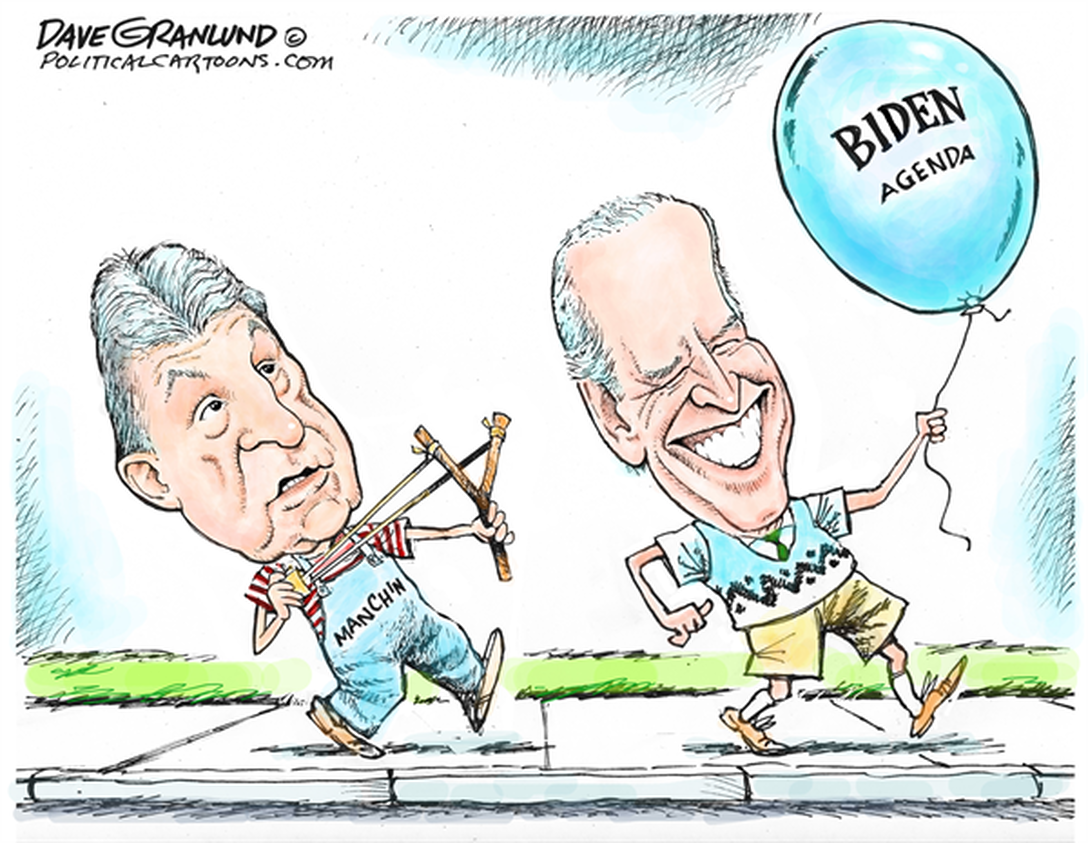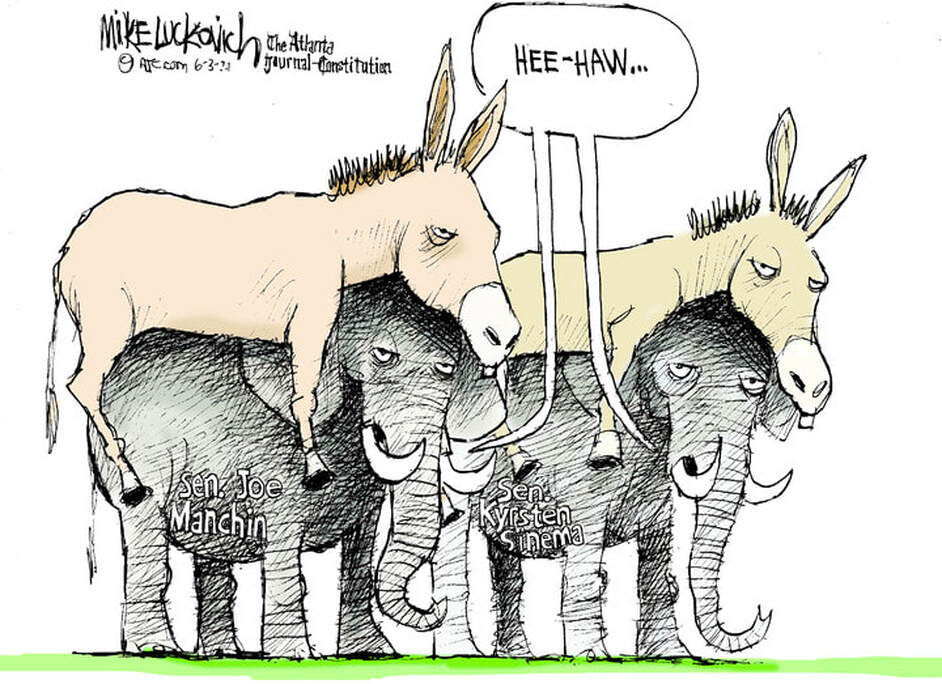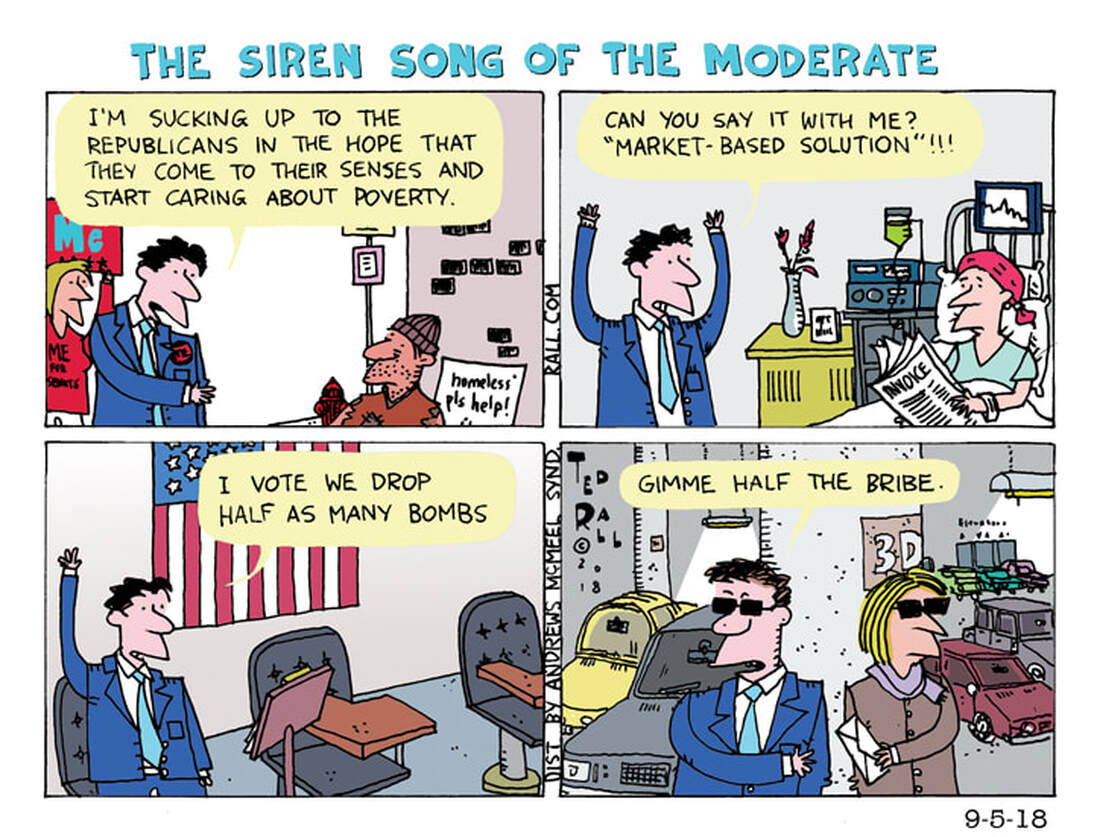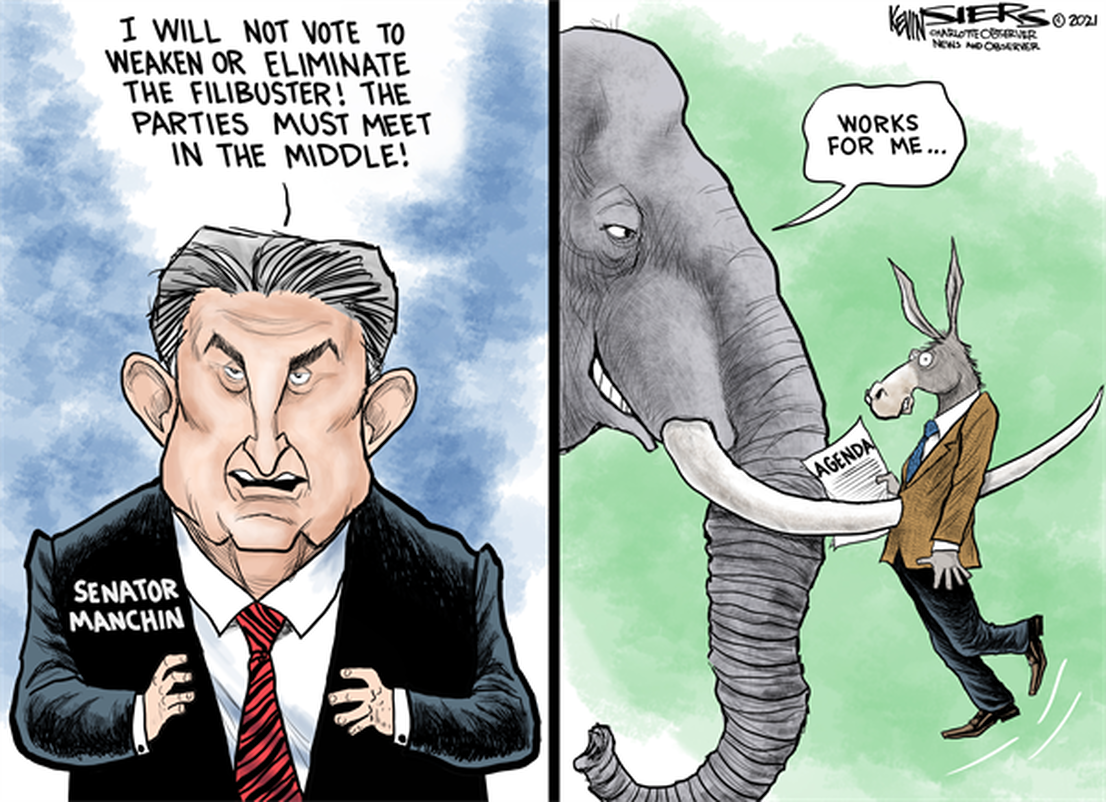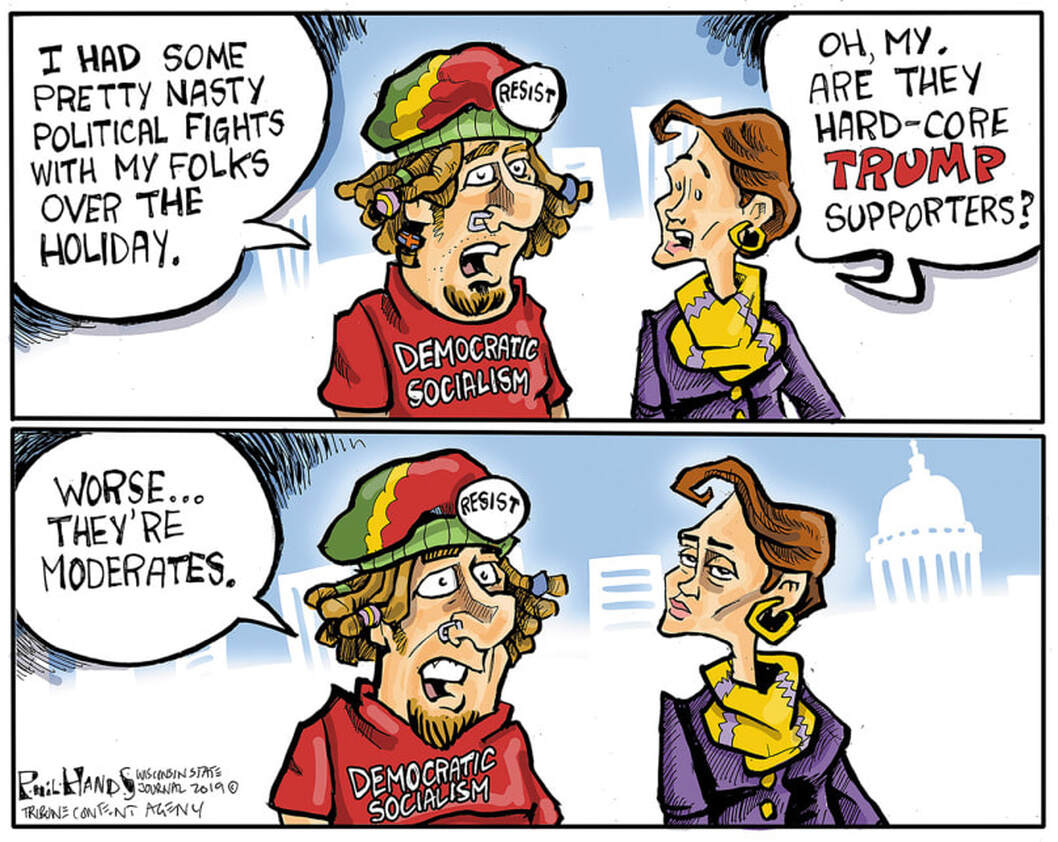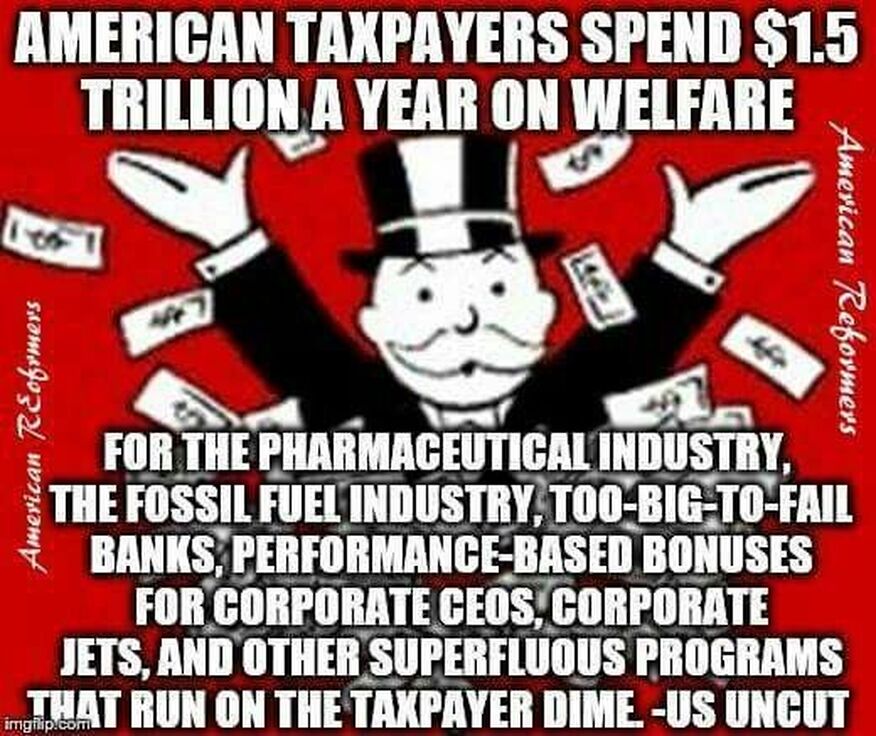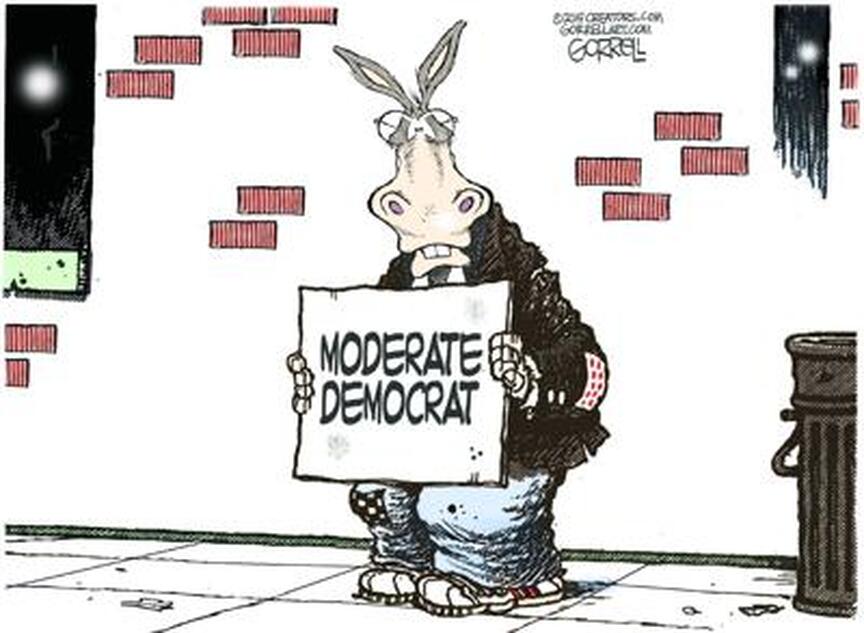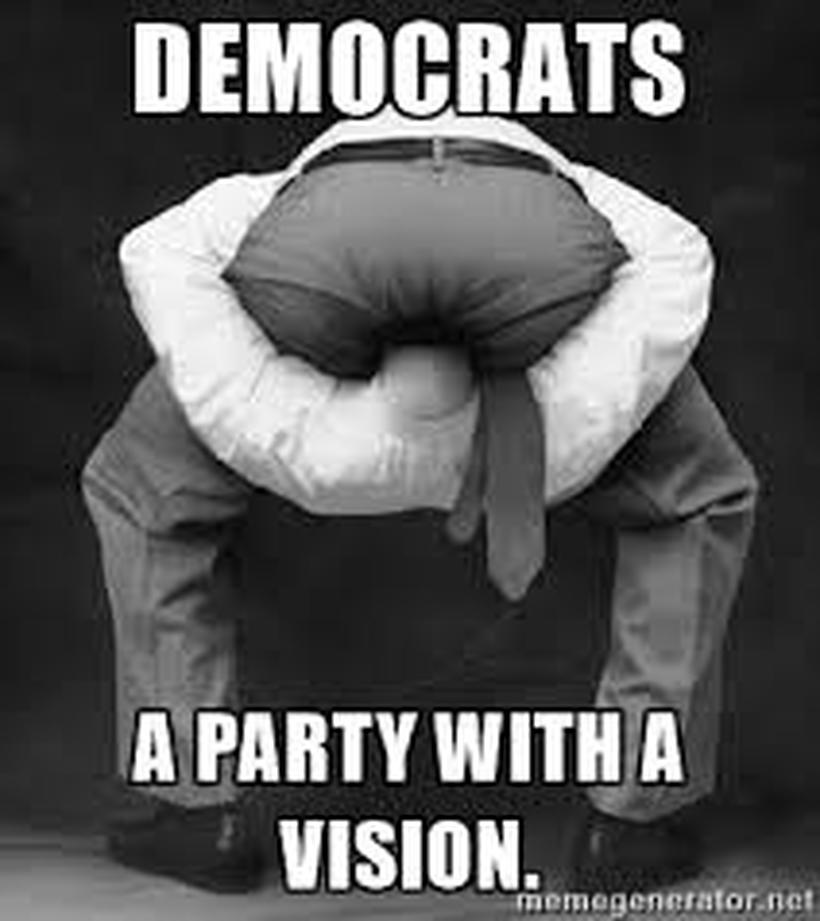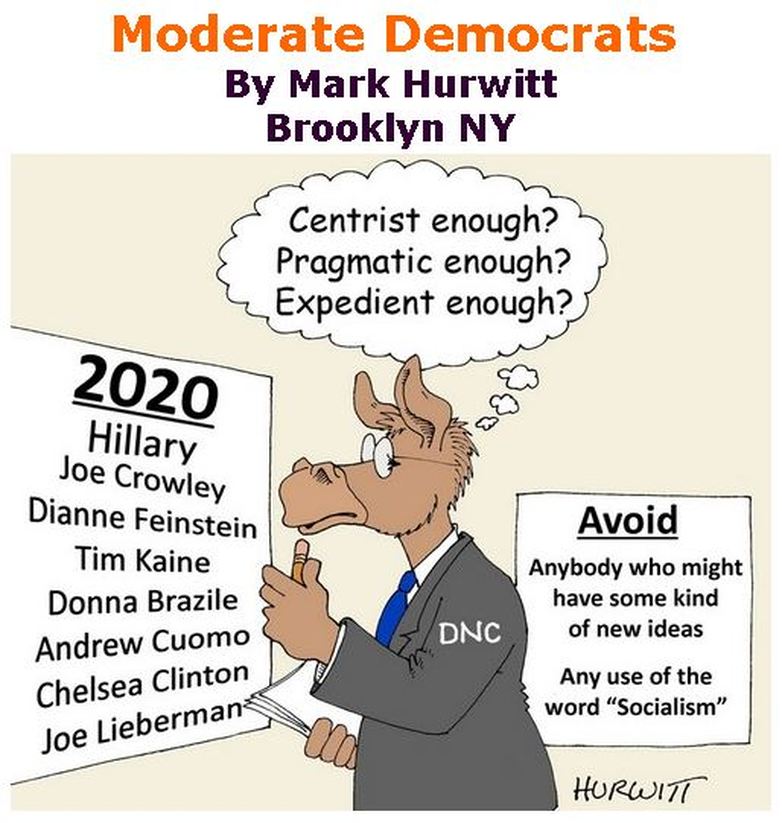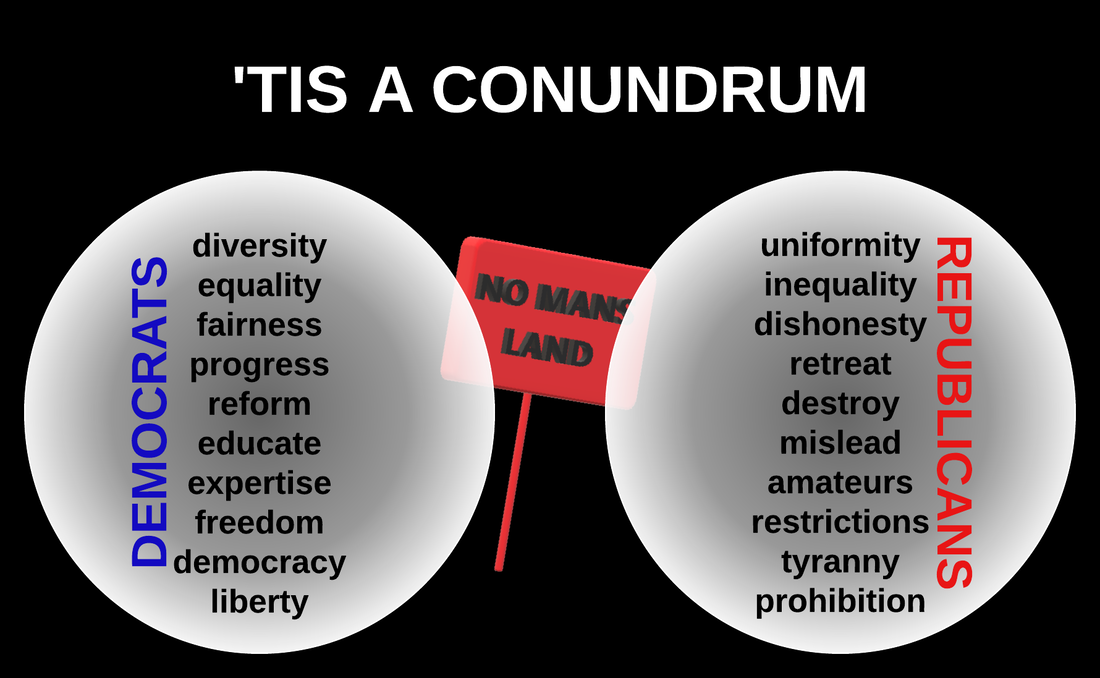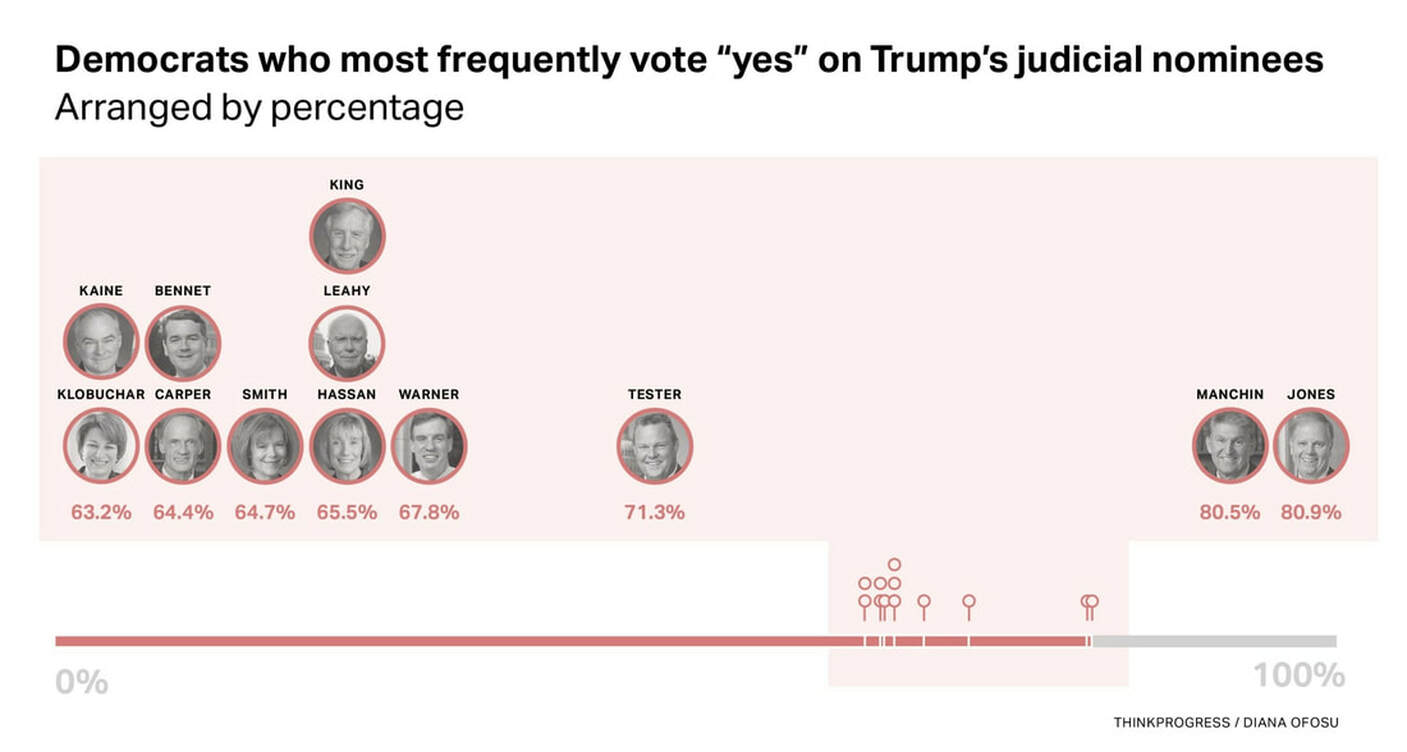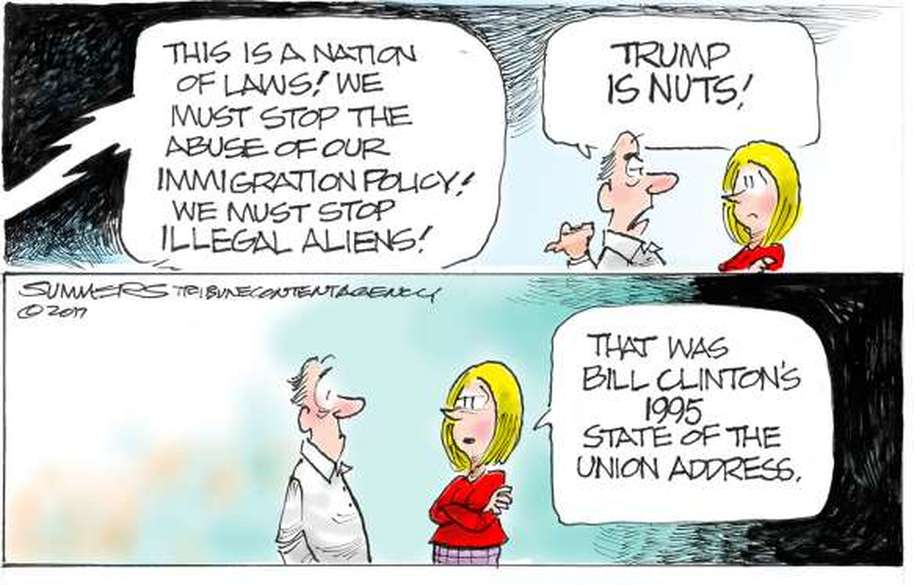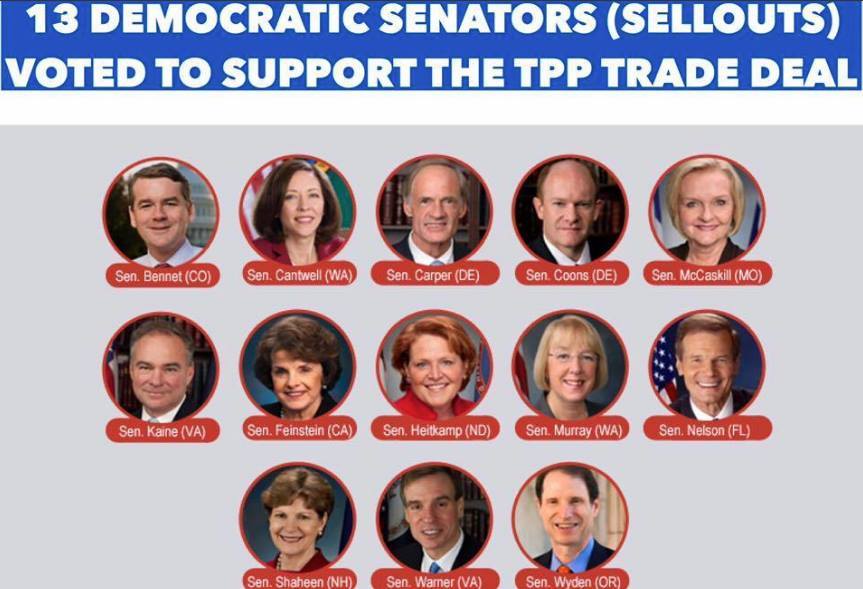TO COMMENT CLICK HERE
Sellouts
the enemy within
In political movements a "sellout" is a person or group claiming to adhere to one ideology, only to follow these claims up with actions contradicting them, such as a revolutionary group claiming to fight for a particular cause, but failing to continue this upon obtaining power.
january 2024
They lack ideas, courage, and competence so they find happiness riding a fence while not pissing off society's oppressors. The defend the status quo while lying about supporting progress. They are the very definition of "kind of pregnant"
Sellouts
cartoons(at the end)
Republicans, With an Assist From Manchin, Delay Everything in Order To Destroy Democratic Agenda
by Joan McCarter | the smirking chimp
June 19, 2022 - 7:08am
Senate Republicans have been playing a transparent game for months now, using their willing tool of Sen. Joe Manchin (D-WV) to drag out negotiations on any number of issues to keep him away from Majority Leader Chuck Schumer and President Joe Biden. To prevent Democrats from moving any significant policies that can help the American people and give Democrats a win.
They’ve done it on voting rights and election reforms. They’ve done it on climate and energy. It’s just one tactic—and a very successful one—Republicans are using to keep the Democratic majority tied up and unable to accomplish anything.
Case in point: additional funding for the federal COVID-19 effort. Manchin’s good friend and frequent negotiating partner Sen. Mitt Romney (R-UT) all but killed it this week when he alleged that the Biden administration lied about the government’s ability to secure additional vaccines, treatments, and supplies. That’s because the White House recently announced it was taking money from other priorities to pay for the most pressing needs.
“Washington operates on a relationship of trust between the respective parties,” Romney said Thursday,. “I hope that there’s an appreciation that for the administration to say they could not purchase these things, and then after several months, divert some funds and then purchase them is unacceptable, and makes our ability to work together … very much shaken to the core.” The pearls are tightly clutched.
The White House, not surprisingly, has a different interpretation on how discussions have been going. “We’ve tried to meet Republicans on their requests, and they keep moving the goal posts,” one official told the Washington Post. Another, spokesperson Kevin Munoz, went on the record. “Going back to January, we’ve been working with members of Congress, Democrats and Republicans, on the funding needs for the covid response,” he said in a statement. “We’ve also been crystal clear about the consequences of a lack of funding … including the very real possibility that we would have to reevaluate the planned uses of existing funds.”
There’s one more potential win for the White House—not to mention all the people at risk of catching COVID-19 in the coming weeks and months—Republicans are cynically blocking. It’s nearly as egregious as what they’ve been doing on guns.
All of that puts this in a “we’ll believe when we sit it” mood. “Senate Democrats are preparing for possible summer action on their still-elusive climate, tax reform and prescription drugs bill, grinding behind the scenes on a new version during high-profile gun safety talks.” Because it’s Manchin, once again, that all this is hinging on and Republicans are on the verge of declaring that partisan Democrats have destroyed any hope of gun safety regulation with their unreasonable demands that guns be kept out of the hands of people who have been convicted of violence.
That sets up Manchin to declare that the Democrats have been horrible partisans and he just can’t continue to work with them. He’s used far flimsier excuses before, like the fact that the White House included his name in a statement about Build Back Better. That’s what blew up the whole package last December, supposedly. It likely wouldn’t take anything more for Manchin to do it again.
Republicans are counting on that.
They’ve done it on voting rights and election reforms. They’ve done it on climate and energy. It’s just one tactic—and a very successful one—Republicans are using to keep the Democratic majority tied up and unable to accomplish anything.
Case in point: additional funding for the federal COVID-19 effort. Manchin’s good friend and frequent negotiating partner Sen. Mitt Romney (R-UT) all but killed it this week when he alleged that the Biden administration lied about the government’s ability to secure additional vaccines, treatments, and supplies. That’s because the White House recently announced it was taking money from other priorities to pay for the most pressing needs.
“Washington operates on a relationship of trust between the respective parties,” Romney said Thursday,. “I hope that there’s an appreciation that for the administration to say they could not purchase these things, and then after several months, divert some funds and then purchase them is unacceptable, and makes our ability to work together … very much shaken to the core.” The pearls are tightly clutched.
The White House, not surprisingly, has a different interpretation on how discussions have been going. “We’ve tried to meet Republicans on their requests, and they keep moving the goal posts,” one official told the Washington Post. Another, spokesperson Kevin Munoz, went on the record. “Going back to January, we’ve been working with members of Congress, Democrats and Republicans, on the funding needs for the covid response,” he said in a statement. “We’ve also been crystal clear about the consequences of a lack of funding … including the very real possibility that we would have to reevaluate the planned uses of existing funds.”
There’s one more potential win for the White House—not to mention all the people at risk of catching COVID-19 in the coming weeks and months—Republicans are cynically blocking. It’s nearly as egregious as what they’ve been doing on guns.
All of that puts this in a “we’ll believe when we sit it” mood. “Senate Democrats are preparing for possible summer action on their still-elusive climate, tax reform and prescription drugs bill, grinding behind the scenes on a new version during high-profile gun safety talks.” Because it’s Manchin, once again, that all this is hinging on and Republicans are on the verge of declaring that partisan Democrats have destroyed any hope of gun safety regulation with their unreasonable demands that guns be kept out of the hands of people who have been convicted of violence.
That sets up Manchin to declare that the Democrats have been horrible partisans and he just can’t continue to work with them. He’s used far flimsier excuses before, like the fact that the White House included his name in a statement about Build Back Better. That’s what blew up the whole package last December, supposedly. It likely wouldn’t take anything more for Manchin to do it again.
Republicans are counting on that.
Find the Common Ground They Say, Heh...
Soph0571 - demo underground
anti-aca democrats
|
|
